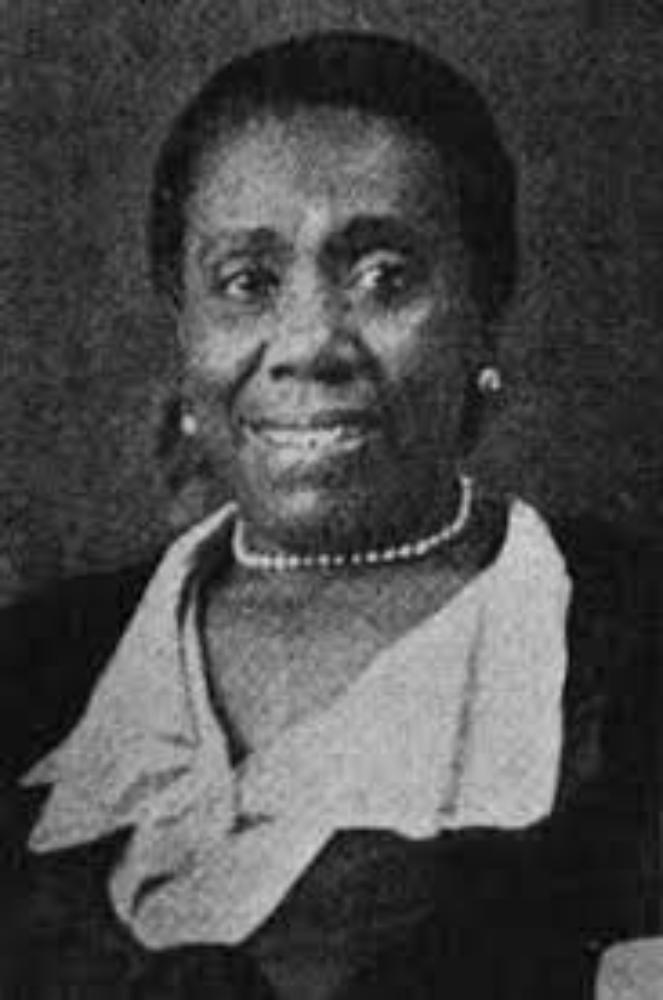Emma Harris was a multi-talented African American cultural influencer in Europe, the Russian Empire (later the Soviet Union) as well as the Middle East. Harris was born into a poor family in Georgia on October 7, 1871. Her parents were washerwoman Sarah Green and millworker Richard Matthews. Emma also had a brother, Thomas, and a sister, Josephine.
Emma Harris attended Edmund Asa Ware High School, a segregated high school for African Americans in Georgia, and later she went to the Negro Mission College in Norfolk, Virginia. By December 1896, she had moved to Brooklyn, New York, where she married local janitor Joseph Harris.
After the sudden death of her first child, Harris concentrated on her singing career. To receive the blessing of her devout parents, she began to sing in the Trinity Baptist Church Choir in Brooklyn while working as a maid.
In early April 1901, 29-year-old Harris successfully participated in a casting call by German theater impresario Paula Kohn-Wöllner and joined her vocal and dance tour of Europe. Returning from the successful tour four years later, in 1905, Harris received an offer from Baltimore businessman Harry Lins, who proposed to sponsor her first solo tour of the Russian Empire under the stage name Galima Oriedo: The Black Nightingale.
With control over her own program, Harris quickly became a popular opera singer and theater dancer, singing songs in four languages, playing the flute and ocarina, imitating various sounds with her voice, as well as participating in collaborations with other American entertainers abroad, including Edgar H. Jones, Pearl Hobson, and Frederick Bruce Thomas.
Between 1910 and 1911, Harris performed in the Ottoman Empire, Iran, and the European nation of Georgia, where she was popular with the local nobility. After the tour ended, Harris married Alexander Mizikin, her Russian manager, and the couple settled in the working-class district of Kharkiv, Ukraine (then part of the Russian Empire), where they managed a local cinema until 1914.
With the outbreak of the First World War, Harris moved to Moscow, where she began her career as a screenwriter and film actress and started in two early Russian motion pictures, Satan Woman and Feet Up. During the October Revolution of 1917, Harris organized an infirmary and later a laundry at her home in Moscow.
At a revolutionary protest demonstration on March 11, 1918, Harris caught the attention of Bolshevik leader Vladimir Lenin, who, upon seeing her, declared that the new Soviet Union would adopt anti-racist values. With his declaration, the crowd gathered Harris into their arms and carried her through the streets of Moscow.
By 1919 Harris was working as an interpreter and teacher of English in Moscow. She also became famous for her homemade American cuisine, which was popular among the nation’s new political elite. Over the next two decades, a number of American visitors to Moscow came to her home in the city, including Langston Hughes, James Pierce, Harry Haywood, Samuel Spewack, and other celebrities.
In the late 1920s, Harris began working in various Soviet factories. She also became one of the leading speakers for the International Red Aid (MOPR). In that capacity, she traveled across the Soviet Union, giving fiery speeches in Russian and other languages denouncing racism. She also sang black spirituals she remembered as a child and wrote poetry for Soviet newspapers.
In August 1933, when the United States finally recognized the Soviet Union, Harris received permission to return to the U.S. for a visit. After arriving in New York in September, she spent the next several years traveling across the U.S., giving lectures on her success and fame in the Soviet Union in contrast to her American experiences. In 1939 Harris gave one of her last interviews with black newspaper reporter Ted Poston. She spoke of her plans to return to Moscow, but after her health deteriorated, she died in Brooklyn on December 31, 1940, at the age of 69.

